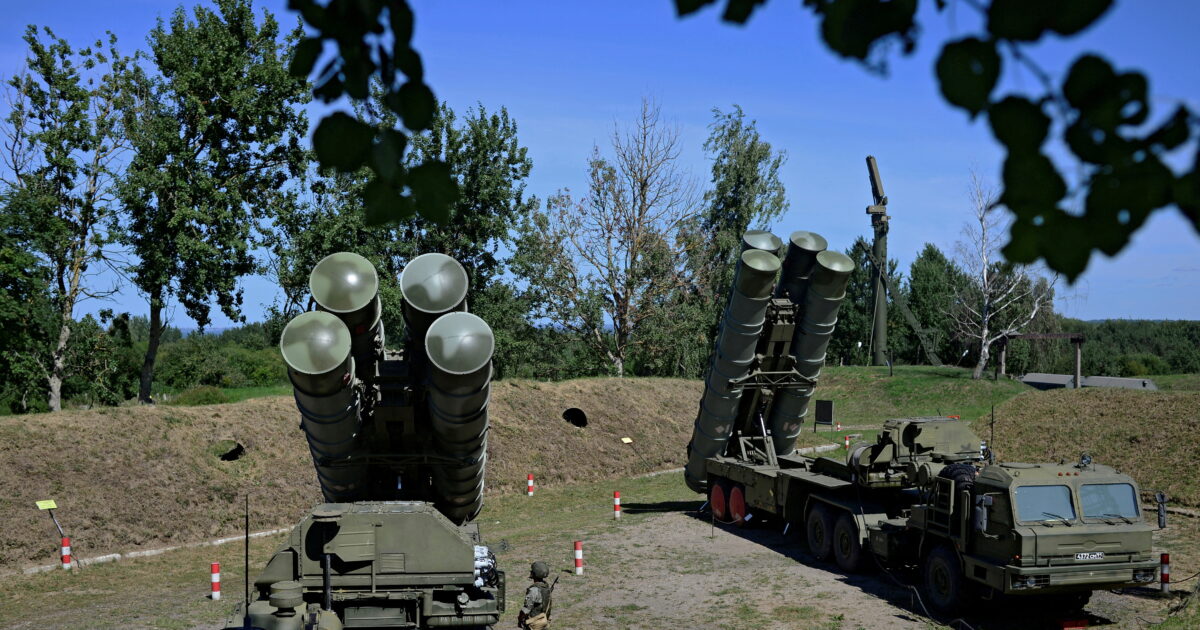Their concern about the possible development of Turkish S-400-type missile systems in Syria MPs Bradley Schneider and Gs Bilirakis expressed in a letter to James Holtsnunder, head of the Civil and Military Affairs Office of the Foreign Ministry. USA.
In their letter, US lawmakers are asking the US Foreign Ministry department to evaluate how such a development could affect Israel’s comparative military advantage but also the broader prejudice architecture, demanding that they receive a secret update For the impact that will have a possible transfer of S-400 to Syria.
In this light, they note that Such a transfer will not only resolve the violation of penalties from Turkeybut will not even serve the wider American interests, which are linked to the maintenance of regional stability, preventing the spread of Russian defense systems and protecting the security of the nearest US partners.
As they typically indicate in their letter, ”Turkey has used US F-16s to violate Greek airspace and harass Cypriot energy infrastructure».
Still add: ‘President Erdogan hosted Hamas leaders, praised Hamas Following October 7 attacks, he suspended diplomatic and trade relations with Israel and prevented NATO’s coordination with Israeli partners. It has embraced the maritime doctrine of the “blue homeland” to threaten the energy development of our allies and partners. “
Finally, MPs warn that a possible transfer of the S-400 to Syria will seriously affect the credibility of the law on the treatment of America’s opponents through sanctions and the Israeli military superiority policy, as it would show that the implementation of these principles may not be adapted to the US.
The letter of Members
“We are writing to express serious concern about recent reports indicating that US officials have examined Possible transport of Russian construction of S-400 missile systems held by Turkey to Syria.
Although this idea may not be under official examination, its appearance in high -level diplomatic discussions requires immediate evaluation by the State Department.
Such a transfer will neither resolve the violation of Turkey’s sanctions legislation nor will it serve US interests, maintaining regional stability, preventing the spread of Russian defense systems or protecting the security of our nearest partners.
Although the Office of Civil and Military Affairs would not play a direct role in facilitating such a transfer, the leadership of your office in the Joint Political and Military Group of the US-Israel (JPMG) and its detailed capacity make it uniquely positioned to evaluate and disclose its impact.
The S-400 is a Russian Russian air defense system with a range of up to 400 kilometersadvanced Radar architecture, detection against stealth technology and limited capabilities Interception of ballistic missiles.
His return to Syrian territory after the withdrawal of Russia’s systems would fundamentally change the landscape of regional air defense regardless of who his operator would be. If placed along the western corridor of Syria, it could seriously limit Israeli operations against Iranian resources or Hezbollah refueling roads.
This would downgrade Israel’s operational flexibility in the region and elaborate on the technical basis of its quality advantage that the United States has been working for a long time to maintain.
The question of who would handle the system posted an additional risk. If Turkish staff retains the responsibilities of administration and control, this would introduce the real possibility of a conflict between Turkish and Israeli forces.
Alternatively, if transferred to the Syrian authorities, the system would also create a new layer of ambiguity strategic in an already unstable environment, complicating the operational ability to avoid conflicts of Israel and the US, increasing the risk of incorrect calculation and strengthening the factors that the US has limited capacity to control.
Israel’s designation as a major ally except NATO (MNNA) and a large strategic partner codify a privileged defense that presupposes that at least US political decisions will seek to avoid the degradation of Israel’s operational security. The introduction of a large -scale air -range platform to Syrian territory would have such a devastating impact.
At the same time, the perception that such a transfer could help resolve Turkey’s report on Caatsa law is both legally and strategically incorrect. Article 231 of CAATSA requires sanctions for “significant transactions” with the Russian defense sector. These sanctions were activated against Turkey because of the acquisition of the system itself – not its development location.
The relocation of the S-400s does not solve the violation of the law, even if it can mitigate other legal concerns, and the presentation of the issue as a kind of regional problem would undermine the deterrent functioning of the law and would risk further normalizing the presence of Russian systems in the NATO.
We are worried that Rewarding Ankara’s strategic disobedience with implicit approval of a metaphor will send the message that imposition of sanctions is subject to political improvisation.
The credibility of the CAATSA law, as well as the framework of quality military superiority (QME), is based on consistency. If the transfer (of the S-400) becomes precedent to avoid (the consequences of the law), then our future opponents and partners will take into account it. Your office may not manage sanction policy, but it plays a vital role in shaping the way the US government evaluates and responds to changing military reality.
We urge you to conduct a rigorous evaluation of the way a S-400 development in Syria-under any operator-will affect Israel’s comparative military advantage, US forces’ attitude and broader prejudice.
We also ask for confidential information to discuss the prospects of such a transfer and its impact. This recommendation must be understood in the broader context of President Erdogan’s constant deviation from NATO rules.
Turkey has used US F-16s to violate Greek airspace and to harass Cypriot energy infrastructure.
President Erdogan hosted Hamas leaders, praised Hamas after the October 7 attacks, suspended diplomatic and commercial relations with Israel and prevented NATO’s coordination with Israeli partners. It has embraced the maritime doctrine of the “blue homeland” to threaten the energy development of our allies and partners. “
